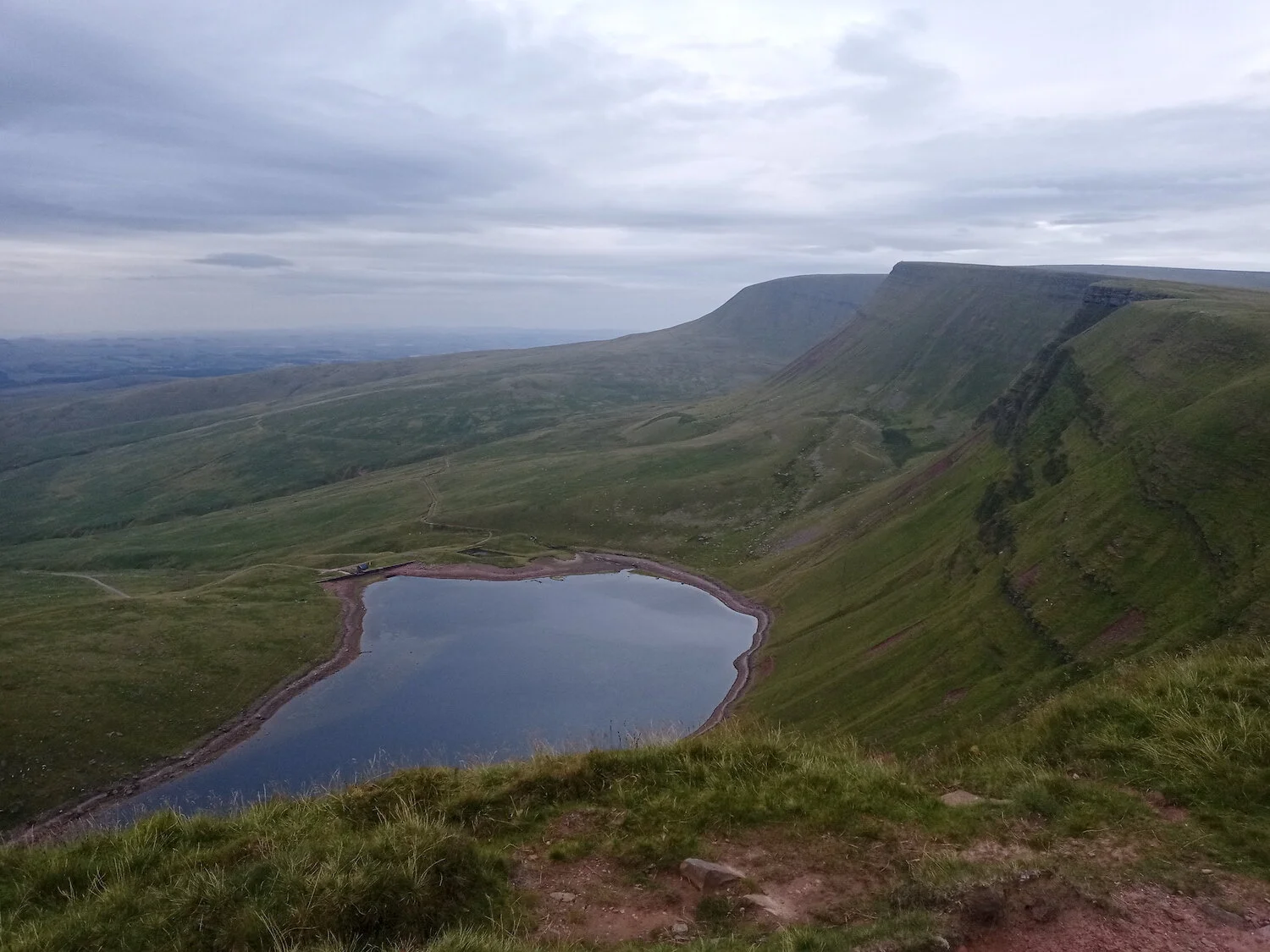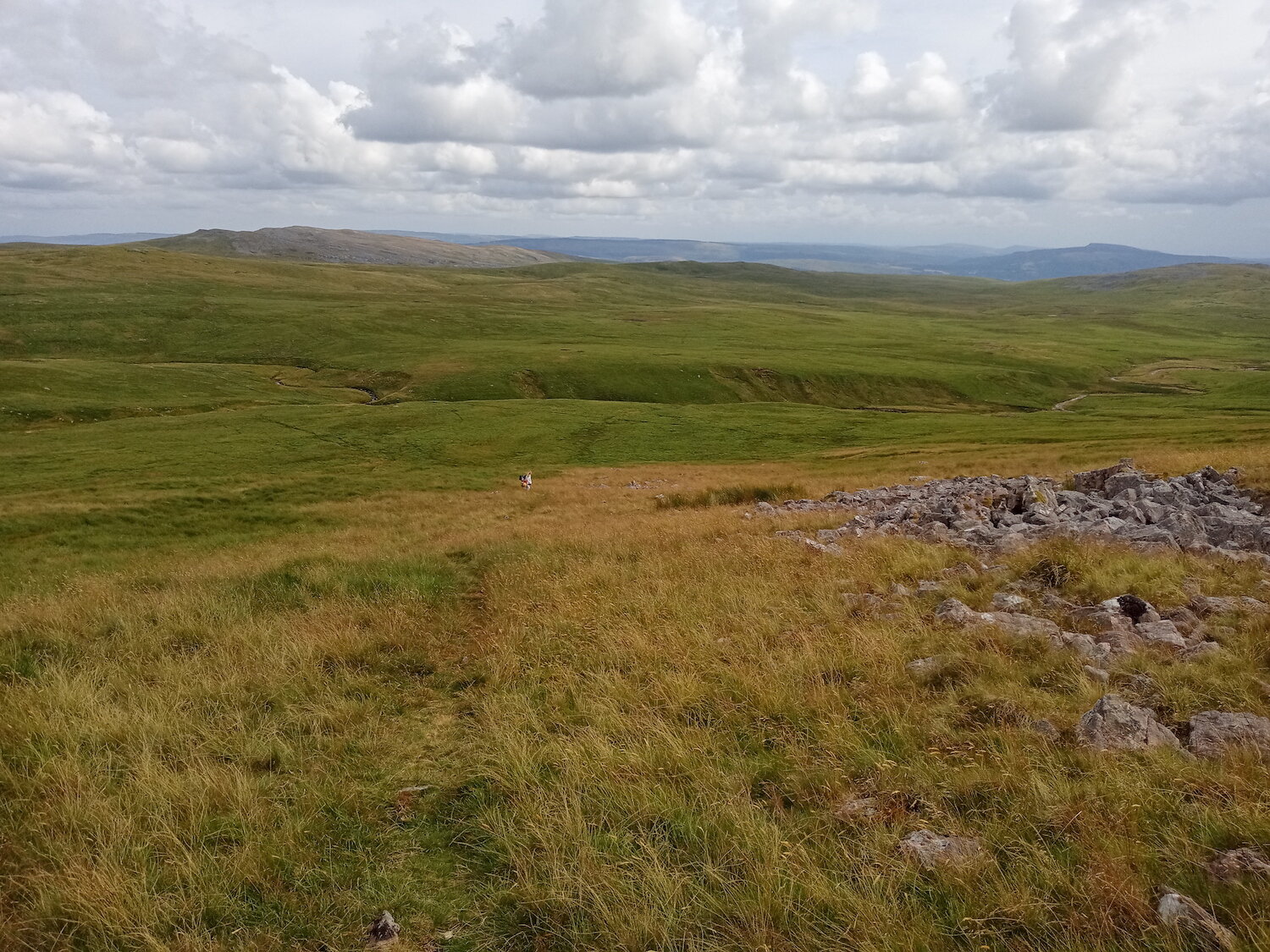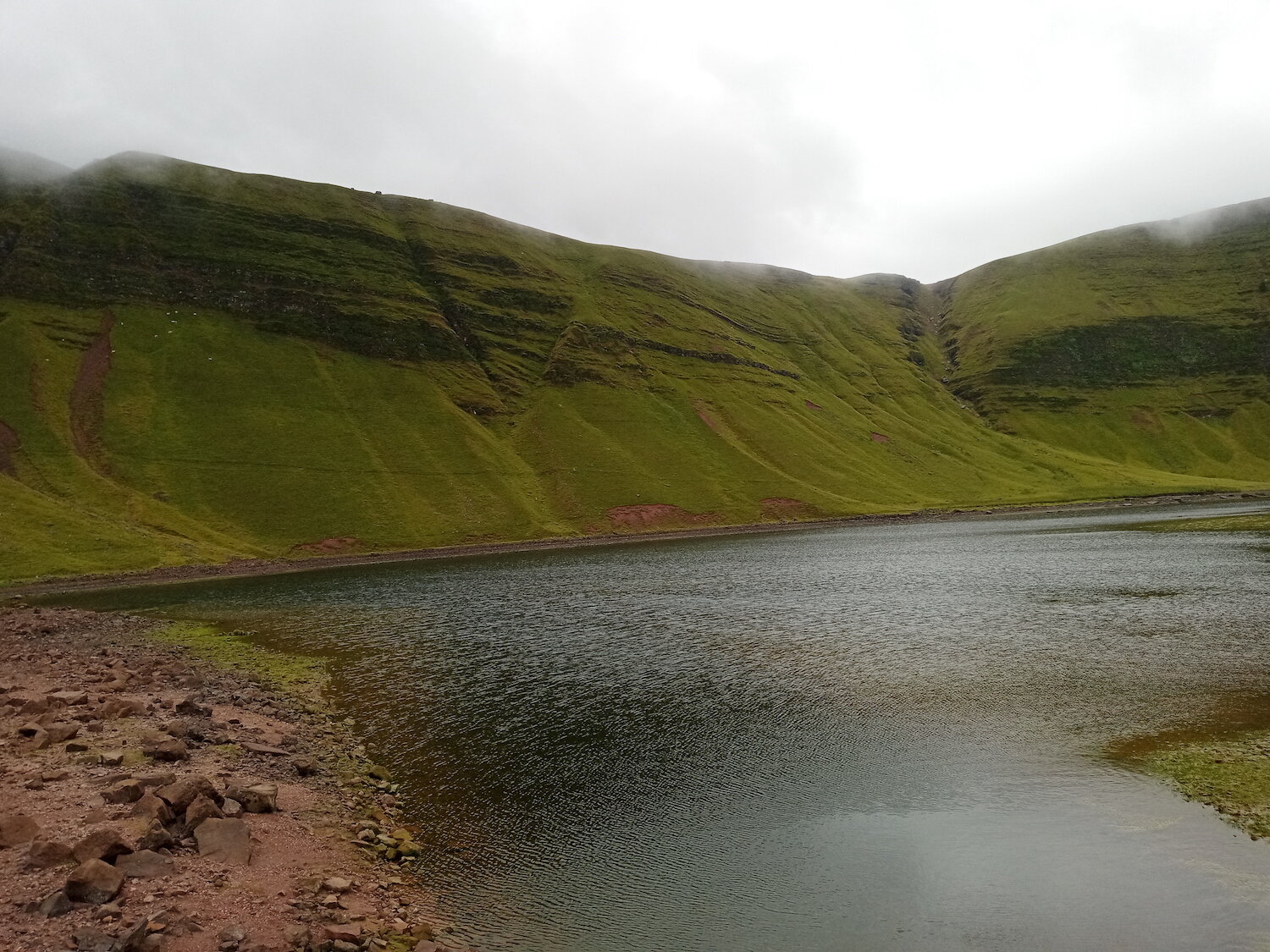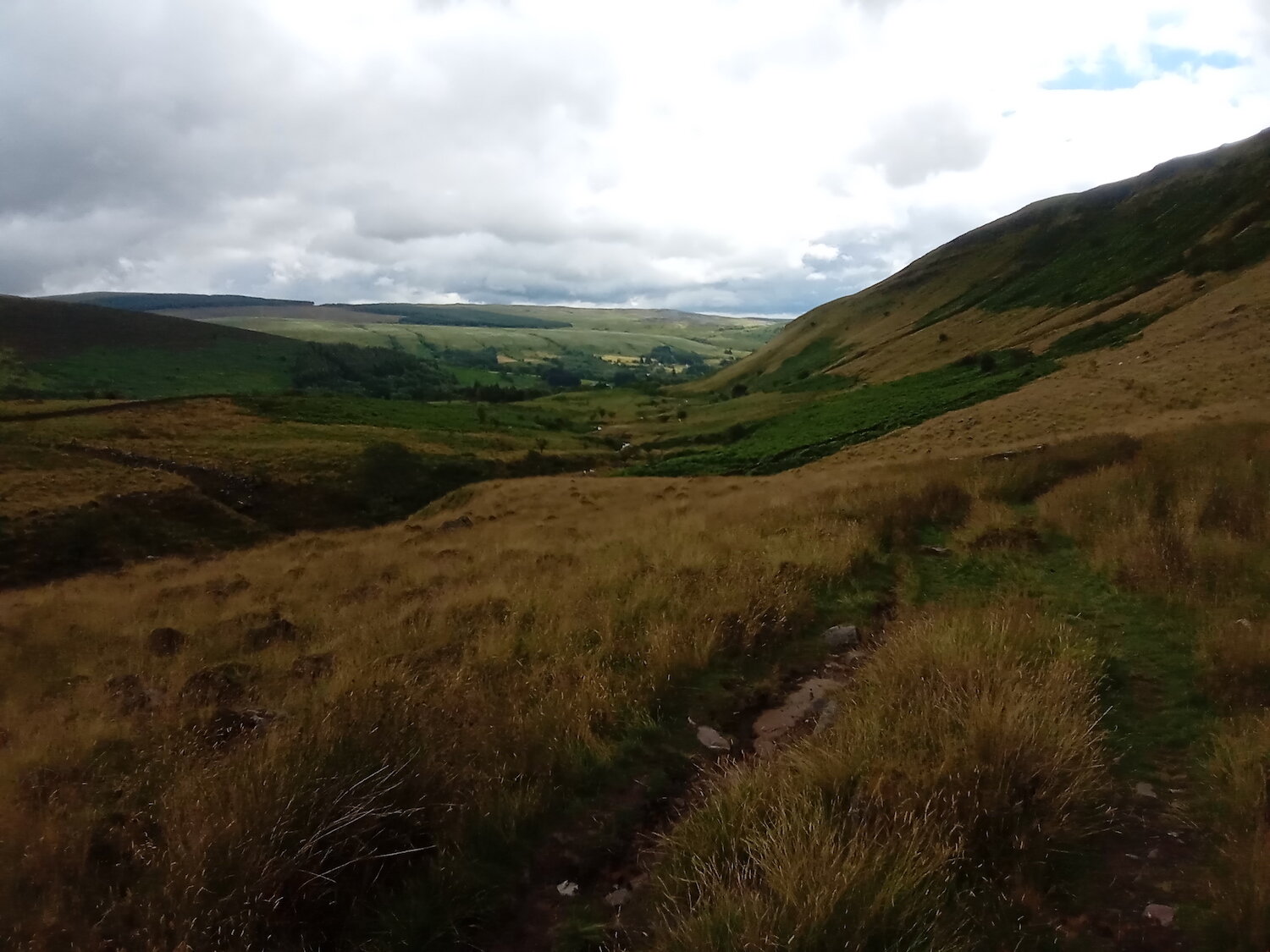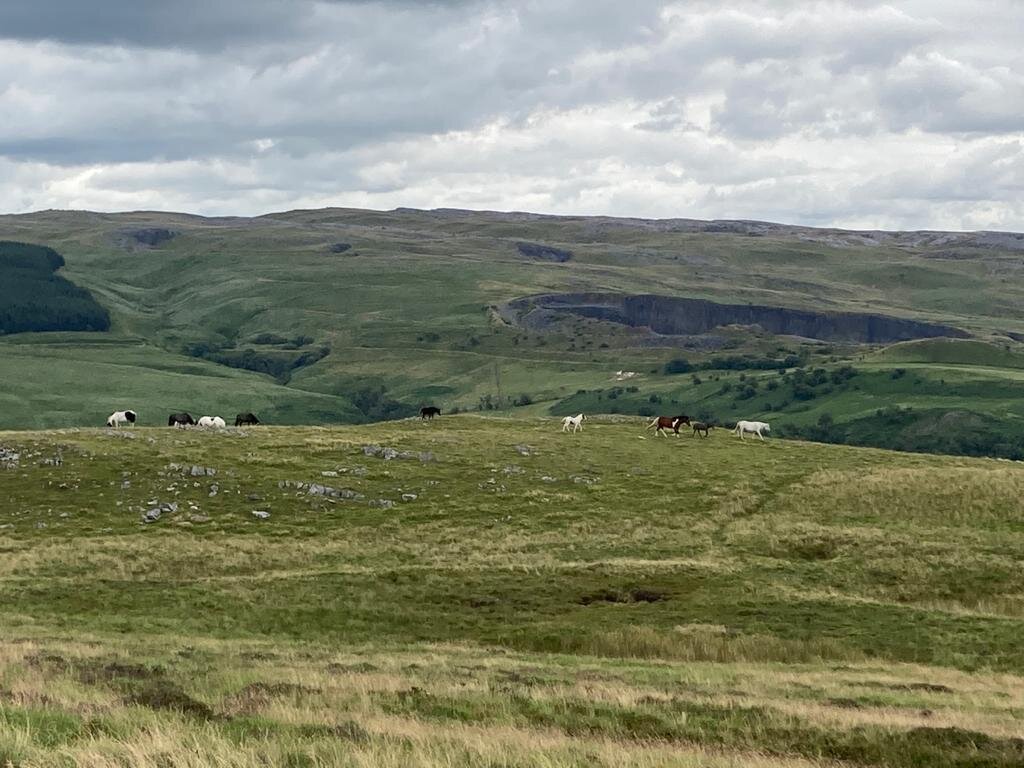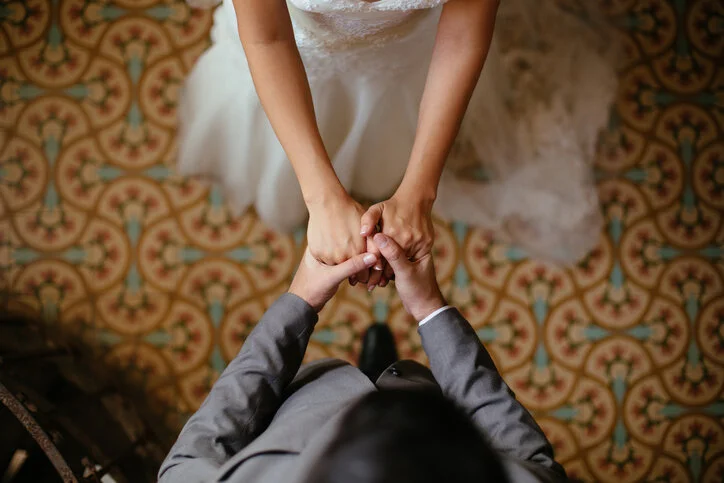Chasing the Dragon
By Richard Owen Collins
We start walking at noon.
The weather is mild. We’ve been obsessively checking the reports the last few days. Some light rain expected, but otherwise clear. This is good. We’re prepared.
We lug our absurdly heavy backpacks across lush rocky streams, up steep footpaths surrounded by big rocks which when we look closer are actually sheep, dotted around, munching, and past dried old sticks that look like ancient bones.
We want to do this trip the old way, with a folded up OS map, using our wits, but soon we get tempted to cross reference this with an offline GPS app. We want to be bold travellers, we want to find true nowhere, but we’re twenty-first century animals. We want hardship, we want adventure, but breaking away from our comforts won’t come easily.
We’re in the heartland of the Brecon Beacons, not far from where I grew up. Despite spending my childhood here, I never felt Welsh until I left Wales, but living in different countries has given me a retroactive yearning to connect with my heritage, so here we are, me and my girlfriend Jess, chasing that dragon.
Our route is simple. Walk from the small village of Glyn Tawe to Llyn Y Fan Fach (Little Lake at the Peak) which in the photographs we’ve seen online looks almost otherworldly. Camp for a night on the mountain ridge, looking out at the world, then walk the next day to its neighbour, Llyn Y Fan Fawr (same name, change small for big, Welsh place names are beautifully simple).
We want to play at living in the wild, but soon our shoulders are burning, backs creaking. I’m questioning if I can actually do this, and then we see them, a herd of wild horses running across the hills together for no other reason besides the pure joy it gives them. Morale is lifted by beautiful sights. We stop and watch them for a while.
I think of the Bukowski title: The days run away like wild horses over the hills. Walking doesn’t seem so painful now.
The landscape is bleak, moody, difficult. There’s an unattainability about it, and all of the Welsh wilderness. This is land that hasn’t been lived on by humans. There’s nothing here but a grassy desert. And sheep.
We soldier on for hours, past sink holes, ponds with tiny ducklings them, through the sources of rivers. We stop for breaks in which we groan but, despite our tiredness, we both know we’re going to make it. We’re in too deep to pull out now.
As evening sets in, we reach the last stretch, a semi-discernible path up a steep hill. I put my head down and I walk. I want to turn around, because I know when I do the all-encompassing panoramic view will be breath-taking, but I want to delay it until I reach the peak. But every peak is a false peak. Each crest of land we reach just turns into more land. The mountains never end.
When we’re breathing hard enough, we turn around and take it in. It’s exactly what I thought it would be. I think about taking a photograph of it, but I know my phone camera won’t capture it, not really. I could look back at the photo in years, but I’d think “that’s not what I saw.” We stop and sit and look for a while. I don’t say anything but I feel a little bit nervous, like we’re too close to the sky.
We reach the peak and see the ridge, hanging over the spectacular, craggy escarpment. I can see why mythological tales were inspired by this place.
We set up our tent.
Just as night falls and we’re drifting off, that’s when it begins.
The wind comes first, buffeting us with anger. The rain soon follows, vengeful, accelerating. We lie there, silently, under assault.
Neither of us wants to say it, but eventually Jess does.
- Are you scared?
- . . . A little bit.
I can understand why ancient peoples believed storms were vengeful gods acting out punishments. Because this feels personal. This is a storm. We are on top of a mountain, hours and miles from anyone, in a storm. We said we wanted hardship, adventure. This is what happens when you chase the dragon.
Our tent might collapse and we might be exposed. We might need to make an emergency getaway, to somewhere, don’t know where. With the guidance of a headtorch, we pack up all our things. Being busy helps our anxiety.
We poke our heads out to see how bad it really is. It’s bad.
The beautiful scenery is gone, replaced by an oppressive, impenetrable sheet of gloom, mist and downpour. It’s another world. Going out there is not an option. We have to stay in the warmth of our sleeping bags, even if the roof is ripped from over our heads. We think about calling mountain rescue, but don’t want to face it just yet.
We hold on.
They say you have to live and experience adversity to write well.
I don’t want to write well.
The storm screams at us all night. Rain finds its way through our walls, we try to ignore it. We lie there and wait. To distract myself I play games in my head.
I tell myself that when sunrise comes, everything will be fine. Even if the storm is still here, it won’t be half as scary when the night has gone away.
Through the longest night, our tent, despite being battered and swayed about, survives. I pledge an eternal love for this piece of fabric and metal.
We make it through the night and the world doesn’t seem like such an awful place anymore.
When we look outside, the mist still hangs so opaquely that the lake is invisible.
We pack up our things and head into it, tired, but relieved, and alive.
This is what happens when you chase the dragon.
You have to escape it.
Richard is from a small village in Wales but has been spotted around the globe. He works in a school and writes stories because he can't not. He tried to quit once but didn't last long.
